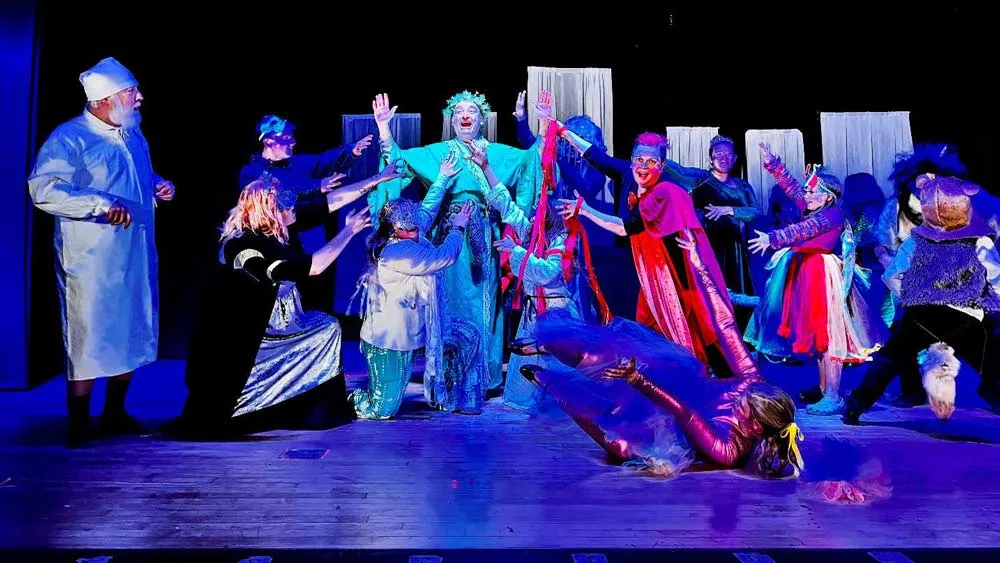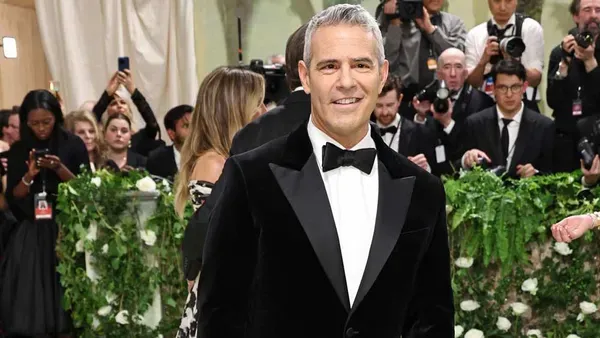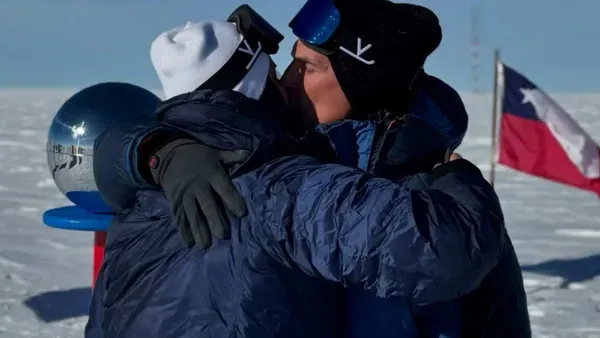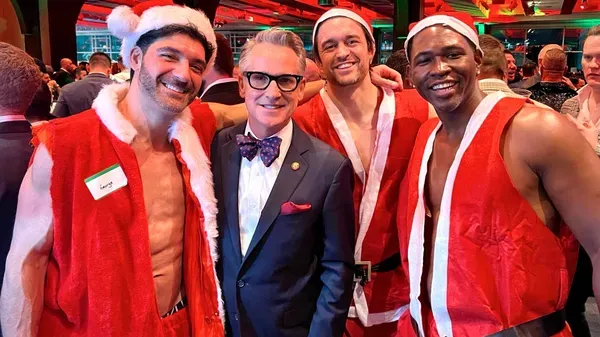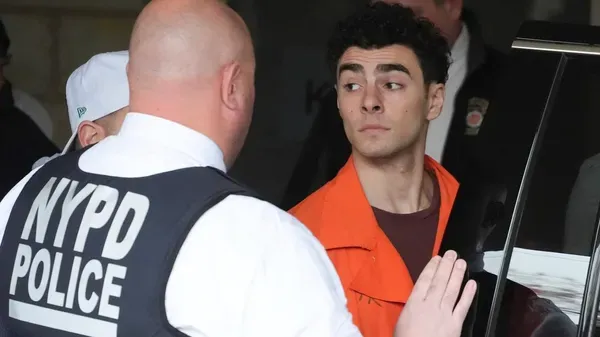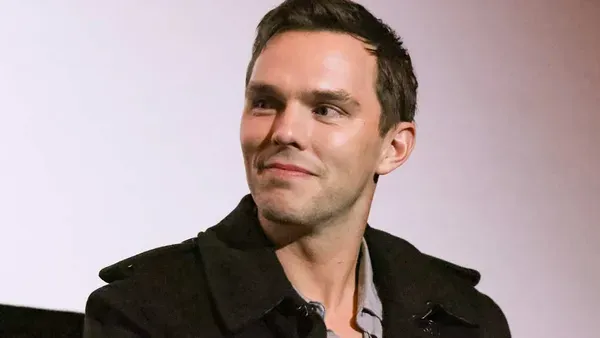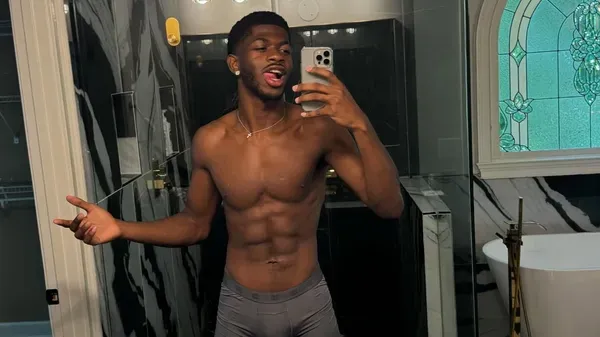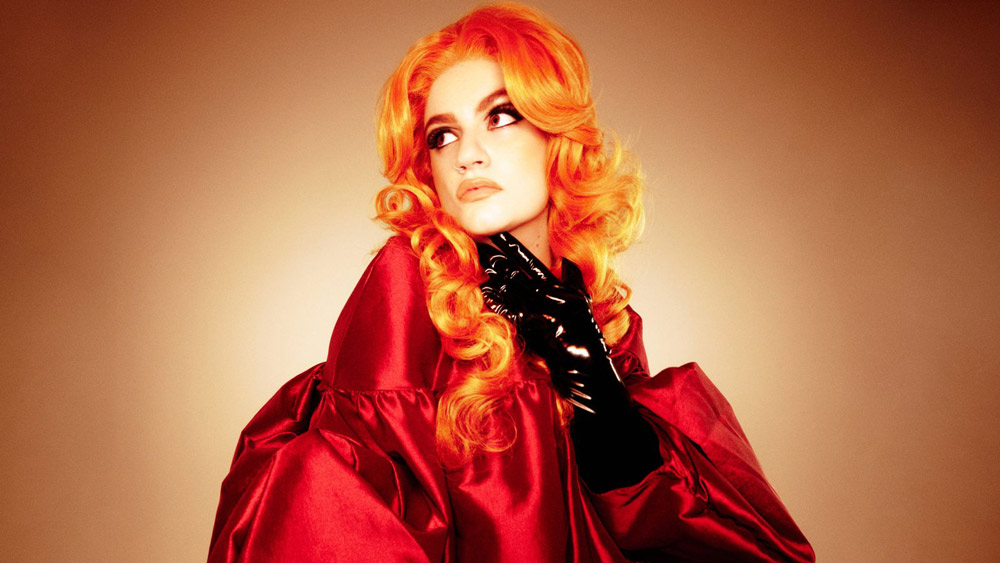
Oct 16
EDGE Interview: Queer Canadian Pop Star Minoe Brings Fire Island Party to the Village
Nicholas Dussault READ TIME: 13 MIN.
Minoe, an indie pop artist hailing from Canada, is making her way in the music industry the old-fashioned way – with hard work. She began writing songs at age seven, but it was the release of her debut EP, "Bleeding Heart's Disco," that exploded her online presence with more than a million streams, primo playlist placements, and festivals in London, Paris and Montreal, where she played Osheaga. Her debut album will be released in 2025, but first the queer singer, songwriter will be making her first appearance in the United States at Ferry's Landing NYC.
The former cabaret room at the iconic West Village watering hole The Duplex was shuddered following a fire in 2022. After major renovations the space has been turned into Ferry's Landing, "the premier destination for queer, immersive entertainment." On October 15 the Fire Island-themed venue opens with three events: "Little House on the Ferry – The Musical," a heartwarming and humorous musical set on Fire Island; "Farandole Dance Party," a vibrant celebration with electrifying music and dance; and "Sultry Shores," a sexy, sultry cabaret that celebrates a Fire Island summer complete with love, lust, and liberally poured libations. "Little House" and "Sultry Shores" will play Tuesday through Saturday, while "Farandole Dance Party" will happen Thursday to Saturdays, each with a different starting time. (For details, visit the Ferry's Landing website.)
"Sultry Shores" is described as a sexy, sultry cabaret that celebrates a Fire Island summer complete with love, lust, and liberally poured libations. The naughty, outrageous, adults-only fun is set to the music of Minoe. The burgeoning international pop star will be making her U.S. debut as the show's emcee. The show's official opening is October 23.
EDGE recently chatted with Minoe as she excitedly prepares for her "first time in the States" and a three-month run in New York City.
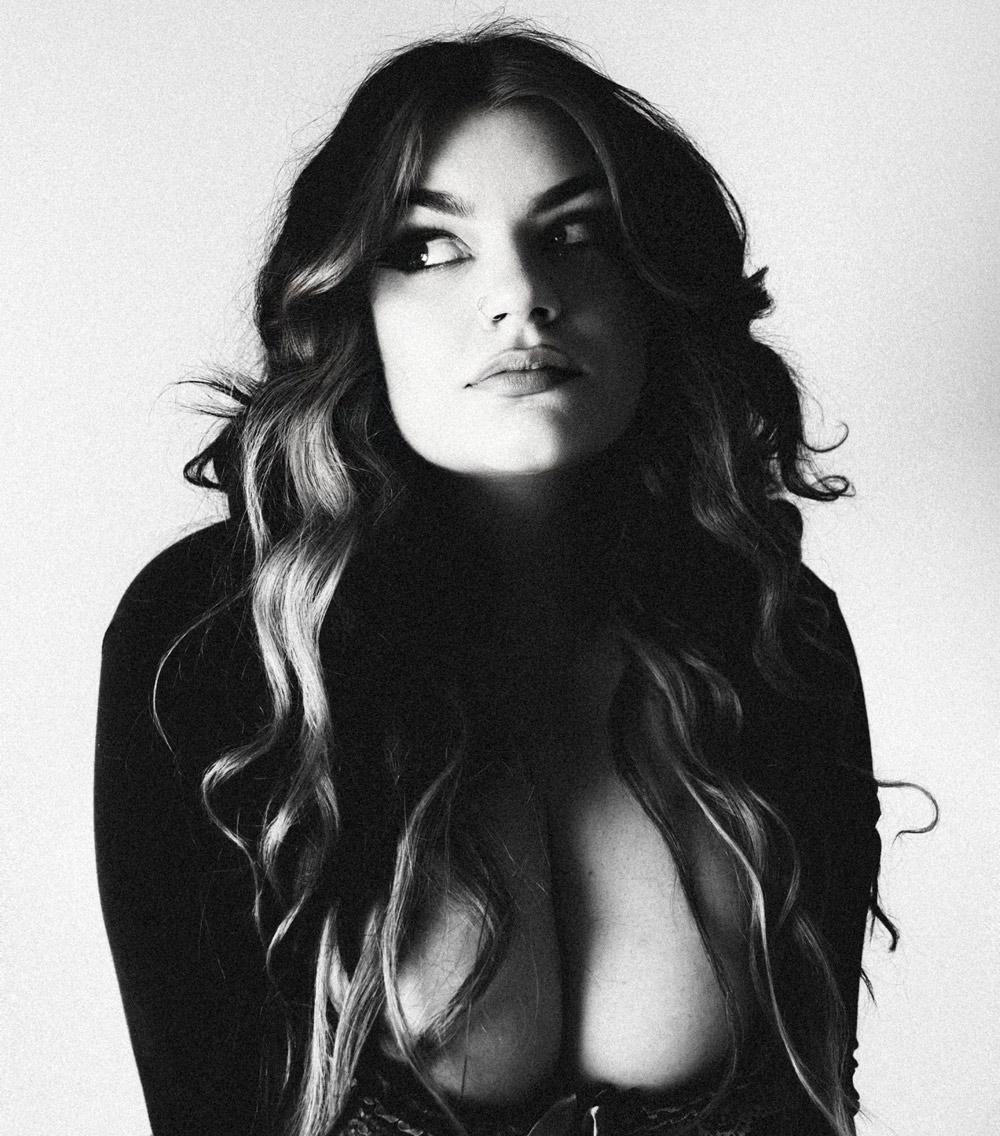
Source: Eric Lamothe
EDGE: How would you describe your music?
Minoe: I usually say alt pop, just because there's quite a combination of stuff in there. Generally, I lean more poppy, but, especially with my stuff coming up next year, I'm going to lean more outside. There's a couple songs where I get a little more dark, but I would describe it as pop.
EDGE: I heard a bit of Adele in you.
Minoe: I've heard that before. I think it's my tone. I don't think it's the production, but I do have a bit of a raspy tone. I think that's what it is.
EDGE: You started writing songs at seven?
Minoe: It's always something that I've done. My mom told me one day I just came out of my room and I had a song. I didn't know anything about music. I'm not classically trained at all, it just sort of happened that way.
EDGE: Do you play any instruments?
Minoe: I taught myself guitar when I was younger. Honestly, I'm pretty bad at it. My hands are small. I never became proficient at it. I hire musicians who've been playing and performing as long as I've been writing.
EDGE: How did you get from songwriting at seven to becoming a performer in Montreal?
Minoe: I'm from Nova Scotia originally. I always knew I wanted to do music, and Montreal seemed like the place to do it. I'm from Halifax. It's a very artistic city, but there's not a whole lot of career opportunities there just because it's smaller. I went to Concordia, where I studied art history. It was a double major, technically; I did art history and studio art. So, I was painting and drawing. People always ask me why I didn't just go to school for music, and I don't have an answer for them. I don't know why. I think I just wasn't confident enough to do it really.
COVID happened, and I didn't finish my degree. Maybe I will at some point. But I just started transitioning to music pretty gradually. I started copywriting, and somewhere in there I realized that I didn't have to have a big, fancy degree to pursue the things I wanted to do. Opportunities just started popping up here and there, and I took the reins of my career.
EDGE: You were a copywriter?
Minoe: I was, actually. I was working for a medical school admissions blog, teaching people how to get into medical school. You take it where you can get it, you know? But it was actually a cool gig, and I learned a lot about medical school from it. It was pretty lucrative, and I was doing it from home, so I was able to pursue music a lot more. I ended up getting a FACTOR grant – it's the biggest granting body in Canada for the arts. I got $67,000 for my project, and it definitely changed everything. I had to hunker down, get a team, and sort everything out.
I started doing crazy research on what do labels do for musicians, and how I could do that by myself with this money. I didn't want to mess it up, basically. Having it educated me a lot. And then my EP was born from that. It was the first project I ever released.
EDGE: Is it easier building a career as an indie artist now that there's so much social media?
Minoe: Definitely. It's this mega tool to reach your audience that nobody ever had access to before. Even labels are scrambling to figure out how to use it. The promotion you can get from a single TikTok that you haven't paid any money for is amazing. It would have cost so much even just 10 years ago to reach that many people. It's a huge thing. I think everyone's freaking out about it, but it's a really good thing. In 2022, when I got my grant, I had a bunch of TikToks that were regularly hitting half a million, a million views. I was doing pretty well on there.
EDGE: Does it blow your mind to think that half a million people are looking at something you've done?
Minoe: Oh my God, yeah. There's a video of me in my bathrobe singing and being dumb, just something stupid, and it has four million views. People still comment on it, and it was two years ago. It's a funny thing, and I think it's something artists come up against.
You know, those videos are awesome and they do well because they're funny and relatable, but I wonder if they speak to my artistry at all. Maybe it's a mistake to consistently put up something that is just, ultimately, easy. It's free for them and free for me when I'm recording myself getting ready to go out or something. It's easy, but it's a really weird landscape at the same time. In a way, I think it was easier back then, when, if you signed to a label, everyone just kind of takes care of all the stuff for you. Now, you're doing the job of what 30 people used to do, creating content and figuring out where you should go and what you should do. There's no roadmap to it all.
EDGE: And here you are creating your own roadmap, though. That's really impressive and cool.
Minoe: Thank you. Thank you very much. It's honestly the thing that I spend the most time on, creating the roadmap and behind the scenes stuff. Pounding the pavement is 90% of it, and then 10% is making the music. It takes 90% of your effort to get something noticed.
EDGE: It must help when you're looking for gigs – not small bar gigs, but bigger venues, to say you have millions of views on social media.
Minoe: It's funny to say, but I don't think followers really translate to people showing up to your shows. At a certain point they have to if you have millions, but in the tens of thousands or even 100,000, it doesn't really matter. You don't know where those people are. They're usually pretty spread out, and following you doesn't necessarily mean that people want to dish out money to come and see something.
EDGE: Really smart observation.
Minoe: It's just stuff that I've learned the hard way, like spending too much money on a venue with bigger capacity and having 30 people show up. It's real stuff, and I'm not ashamed to say it. I think it's important to learn from these things. It's a weird thing. It definitely helps with booking things, but it's only because people have a misconception about what having followers means. So, maybe I shouldn't be telling anyone. Maybe I shouldn't say anything.
